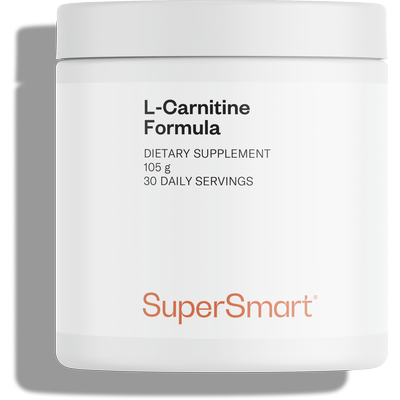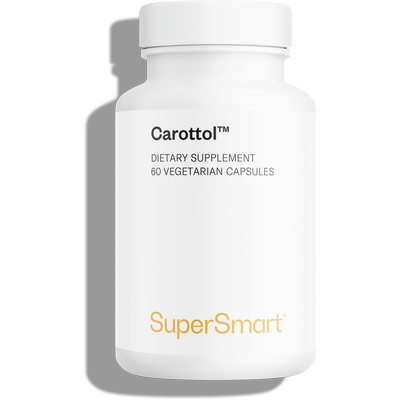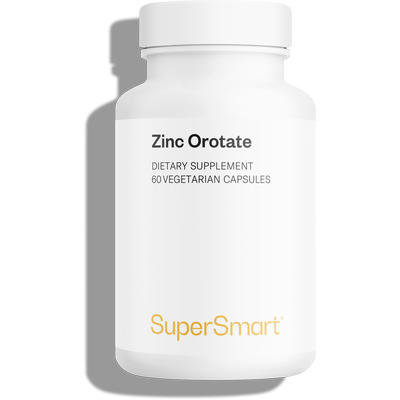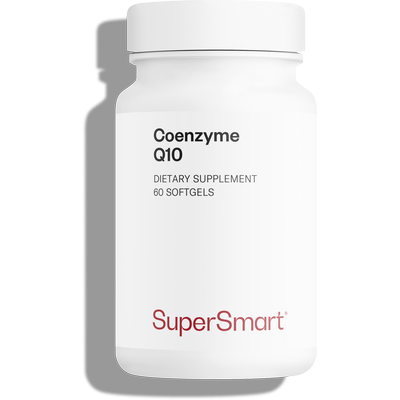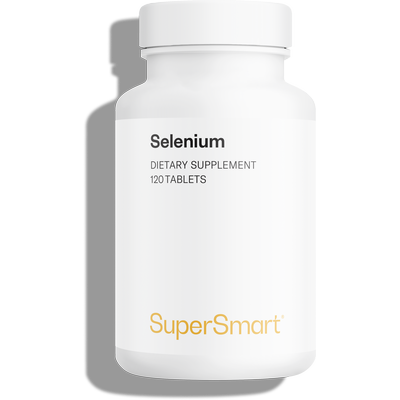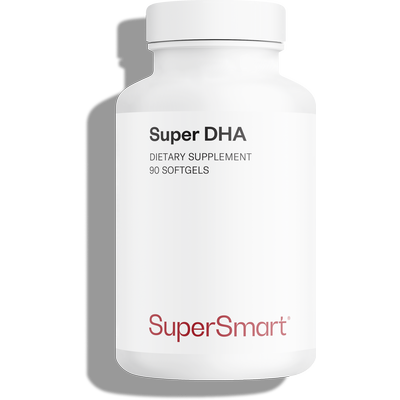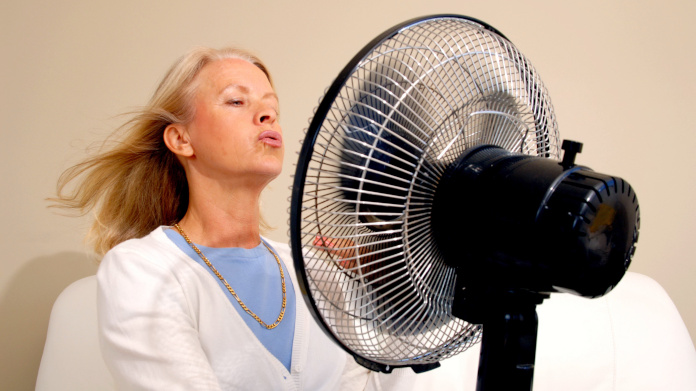Soaring male infertility: prevention and supplements
Male fertility across the world is in increasingly rapid decline. Why is this? What can we do to stop it?

Accelerated decline in male fertility: the current situation
Research had already identified a worrying 50%-60% decline in sperm concentrations among Western male populations between 1973 and 2011 (1). Now a new study has added weight to these findings with two new discoveries: the decline in male fertility is accelerating at an increasing rate and it is not restricted to the West.
Epidemiologists Hagai Levine, Shanna Swan and their colleagues analysed hundreds of studies on male fertility conducted between 1973 and 2018 in around 50 countries (2). In their meta-analysis, published on 15 November 2022, they found that over this 45-year period, sperm concentration in semen declined by an average of 1.16% per year, falling from 101 million sperm per millilitre (in 1973) to 49 million per millilitre (in 2018). Taking the last two decades in particular, it’s clear the decline is accelerating: from 2000 onwards, the amount of sperm in semen decreased by 2.64% per year.
This constitutes a genuine public health issue, say the researchers, with the potential to ultimately “threaten humanity”.
So what’s causing this global decline in male fertility?
Two major factors appear to be responsible for this increasingly rapid decrease in male fertility across the world.
Lifestyle-induced reduction in sperm count
The most easily-identifiable cause of falling fertility is the fact that lifestyles are changing across the world.
It’s clear that increasingly sedentary lifestyles, poor diets and obesity are all having an adverse effect on male fertility. Increased fat-storing adipose tissue releases substances that affect testosterone, a key hormone in sperm production. And the WHO estimates that globally, 39% of men are overweight and 11% are obese (3).
Exercising for an hour a day may be one way of stemming this problem, as physical activity burns fat and increases sperm concentration (the number of sperm per millilitre of semen). Scientists examining semen composition in 261 healthy males found that after 24 weeks, those who were active had a higher number of oxidative stress-resistant sperm than their sedentary counterparts (4).
Smoking (and the use of drugs in general) is also known to reduce sperm count: the semen of men who smoke 10 or more cigarettes a day contains 20% fewer sperm than non-smokers. What’s more, research shows the sperm of smokers to be less motile, due to a change in morphology (5). Excessive alcohol consumption (more than 5 drinks a week) may also affect sperm production and quality.
Last but not least, men who are stressed are more likely to have a low sperm count, as well as a greater number of abnormal or less motile sperm.
We should also mention the role played by sexually-transmitted diseases (chlamydia, gonorrhoea, human papillomavirus …) which can also impair the condition and survival of sperm (6).
Environmental causes of falling male fertility
The second major cause of plummeting male fertility comes from the environment, namely chemical pollution from the burning of fossil fuels and exposure to endocrine disruptors.
The main culprits here could well be compounds in plastics (bisphenol A, S, and F, phthalates), dioxins from waste incineration, additives such as polychlorobiphenyls (PCBs), preservatives such as parabens and, more surprisingly, paracetamol.
And a study has revealed that men who regularly consume fruits and vegetables full of pesticides have 50% fewer sperm than men who eat more healthily (7).
Preventative measures and dietary supplements to support male fertility
As you can see, establishing good lifestyle habits (taking regular exercise, giving up or reducing smoking and alcohol consumption, managing your emotions effectively…) is an important step in increasing male fertility. It’s also wise to avoid the use of anabolic steroids, which can actually make men infertile.
While modern production methods continue to generate pollution and produce poor quality food, it makes sense to minimise your exposure to pollutants and pesticide traces; eating organic is particularly recommended. Choose fruits that are in season as they will have had less exposure to damaging factors (transport, chemical fertilisers, etc).
Diet-wise, try to eat foods rich in the trace-element zinc (offal, red meat, wholemeal bread, eggs, oysters …), as it supports normal fertility and reproduction. It’s particularly important for healthy spermatogenesis. Semen with a high concentration of zinc (ideally 30 times higher than the level in blood) is a sign that it is of good quality (8). To help, you can also take a high-dose zinc supplement such as Zinc Orotate.
Eating seafood, meat, eggs and kombu seaweed will provide you with another mineral, selenium , which also supports normal spermatogenesis and helps protect cells against oxidative stress. One study reported a 10.8% increase in pregnancies in couples where the man had supplemented with selenium, compared with non-supplementers (9). Ideally, opt for L-selenomethionine, the most absorbable form (try the product L-Selenomethionine). Always make sure you follow the recommended dose to prevent any risk of excess.
Focus too on eating salmon, mackerel, sardines and walnuts, all of which are rich in omega-3 fatty acids. Research suggests that one particular omega-3, DHA, is essential for good sperm function(10).
Other foods to prioritise include sweet potatoes, raw carrots, pumpkin, apricots and spinach. All are sources of beta-carotene, a substance believed to support good sperm motility (movement) and speed(11).
An international meta-analysis, conducted by Spanish, Mexican and American universities, reviewed the results of 28 nutritional studies (involving a total of 2900 subjects), in order to assess the effects of nutrients and dietary supplements on the quality of sperm and fertility(12).
The results confirm that men are likely to benefit from an increased intake of zinc, selenium, and omega-3, as well as coenzyme Q10 and carnitine in terms of increasing their sperm count and improving their sperm morphology.
One final tip for our male readers: keep your testicles cool, as sperm really don’t like the heat. The ideal temperature is 32°C. Be aware that hot baths, hammams, too-tight clothes and even using a computer on your lap can have an adverse effect on the quality of your sperm (13).
SUPERSMART ADVICE
References
- Hagai Levine, Niels Jørgensen, Anderson Martino-Andrade, Jaime Mendiola, Dan Weksler-Derri, Irina Mindlis, Rachel Pinotti, Shanna H Swan, Temporal trends in sperm count: a systematic review and meta-regression analysis, Human Reproduction Update, Volume 23, Issue 6, November-December 2017, Pages 646–659, https://doi.org/10.1093/humupd/dmx022
- Hagai Levine, Niels Jørgensen, Anderson Martino-Andrade, Jaime Mendiola, Dan Weksler-Derri, Maya Jolles, Rachel Pinotti, Shanna H Swan, Temporal trends in sperm count: a systematic review and meta-regression analysis of samples collected globally in the 20th and 21st centuries, Human Reproduction Update, 2022;, dmac035, https://doi.org/10.1093/humupd/dmac035
- https://www.who.int/news-room/fact-sheets/detail/obesity-and-overweight
- Jóźków P, Rossato M. The Impact of Intense Exercise on Semen Quality. Am J Mens Health. 2017 May;11(3):654-662. doi: 10.1177/1557988316669045. Epub 2016 Sep 19. PMID: 27645515; PMCID: PMC5675222.
- Sharma R, Harlev A, Agarwal A, Esteves SC. Cigarette Smoking and Semen Quality: A New Meta-analysis Examining the Effect of the 2010 World Health Organization Laboratory Methods for the Examination of Human Semen. Eur Urol. 2016 Oct;70(4):635-645. doi: 10.1016/j.eururo.2016.04.010. Epub 2016 Apr 21. PMID: 27113031.
- https://www.bbc.com/afrique/monde-63979656
- https://www.lexpress.fr/sciences-sante/sante/les-pesticides-nuisent-a-la-qualite-du-sperme_1666660.html
- Xu B, Chia SE, Tsakok M, Ong CN. Trace elements in blood and seminal plasma and their relationship to sperm quality. Reprod Toxicol. 1993;7(6):613-618. doi:10.1016/0890-6238(93)90038-9PubMedGoogle ScholarCrossref
- Moslemi MK, Tavanbakhsh S. Selenium-vitamin E supplementation in infertile men: effects on semen parameters and pregnancy rate. Int J Gen Med. 2011 Jan 23;4:99-104. doi: 10.2147/IJGM.S16275. PMID: 21403799; PMCID: PMC3048346.
- Martínez-Soto JC, Domingo JC, Cordobilla B, Nicolás M, Fernández L, Albero P, Gadea J, Landeras J. Dietary supplementation with docosahexaenoic acid (DHA) improves seminal antioxidant status and decreases sperm DNA fragmentation. Syst Biol Reprod Med. 2016 Dec;62(6):387-395. doi: 10.1080/19396368.2016.1246623. Epub 2016 Oct 28. PMID: 27792396.
- https://www.topsante.com/maman-et-enfant/conception/infertilite/manger-des-crudites-est-excellent-pour-la-fertilite-masculine-49975#:~:text=Une%20%C3%A9tude%20a%20r%C3%A9v%C3%A9l%C3%A9%20que,spermatozo%C3%AFdes%20sains%20et%20plus%20fertiles.
- Albert Salas-Huetos, Nuria Rosique-Esteban, Nerea Becerra-Tomás, Barbara Vizmanos, Mònica Bulló, Jordi Salas-Salvadó, The Effect of Nutrients and Dietary Supplements on Sperm Quality Parameters: A Systematic Review and Meta-Analysis of Randomized Clinical Trials, Advances in Nutrition, Volume 9, Issue 6, November 2018, Pages 833–848, https://doi.org/10.1093/advances/nmy057
- https://www.passeportsante.net/fr/grossesse/Fiche.aspx?doc=futur-papa-booster-fertilite
Keywords
56 Days
Very happy with the order and the…
Very happy with the order and the prompt team's response to an identified issue with my order.
KUQI Fatmir
63 Days
15 + years as a customer
I have been using their products for over 15 years as I find both the quality and pricing excellent.
Del Chandler
65 Days
Good quick delivery
Good quick delivery
Timothy O Shea
66 Days
Good service
Good communication following order. Product came within the time frame and was well packaged. The only confusing thing I found was in checking out. For some reason it is not clear how to do so and the current system should be improved.
Joe O Leary
75 Days
Simple and fast.
Simple and fast.
Nina
76 Days
Great product was definitely what is…
Great product was definitely what is says and arrived on without issue
customer
82 Days
I love reading those product facts on…
I love reading those product facts on Supersmart.com. Effective health products making permanent changes to my blood-work results and testes. However, I also have to order capsules from other websites.
NORDGULEN Olav
84 Days
Great products
Great products Very easy to choose, to order… and to get at home
Federica mastrojanni
87 Days
Service rapide et bons produits
Service rapide et bons produits
customer
88 Days
Good products and fast delivery
Good products and fast delivery
Trusted
93 Days
Does what it says on the can
I believe in this product Made to highest standard The ordering process is straightforward Delivery time prompt Excellent product, excellent service Happy customer ❤️
Sheba Kelleher
98 Days
Excellents produits
Excellents produits. Rien à dire si ce n'est qu'ils sont très chèrs.
MJS_France
100 Days
Very good supplement
Very good supplement
Glaveash
101 Days
Supersmart supplements are really…effective
Supersmart supplements are really effective and have helped me and family members and friends to improve their health including some of us with severe health problems including some with no existing medical treatment.
Anne Georget
103 Days
SuperBig Supersmart
SuperBig Supersmart
Pierre

